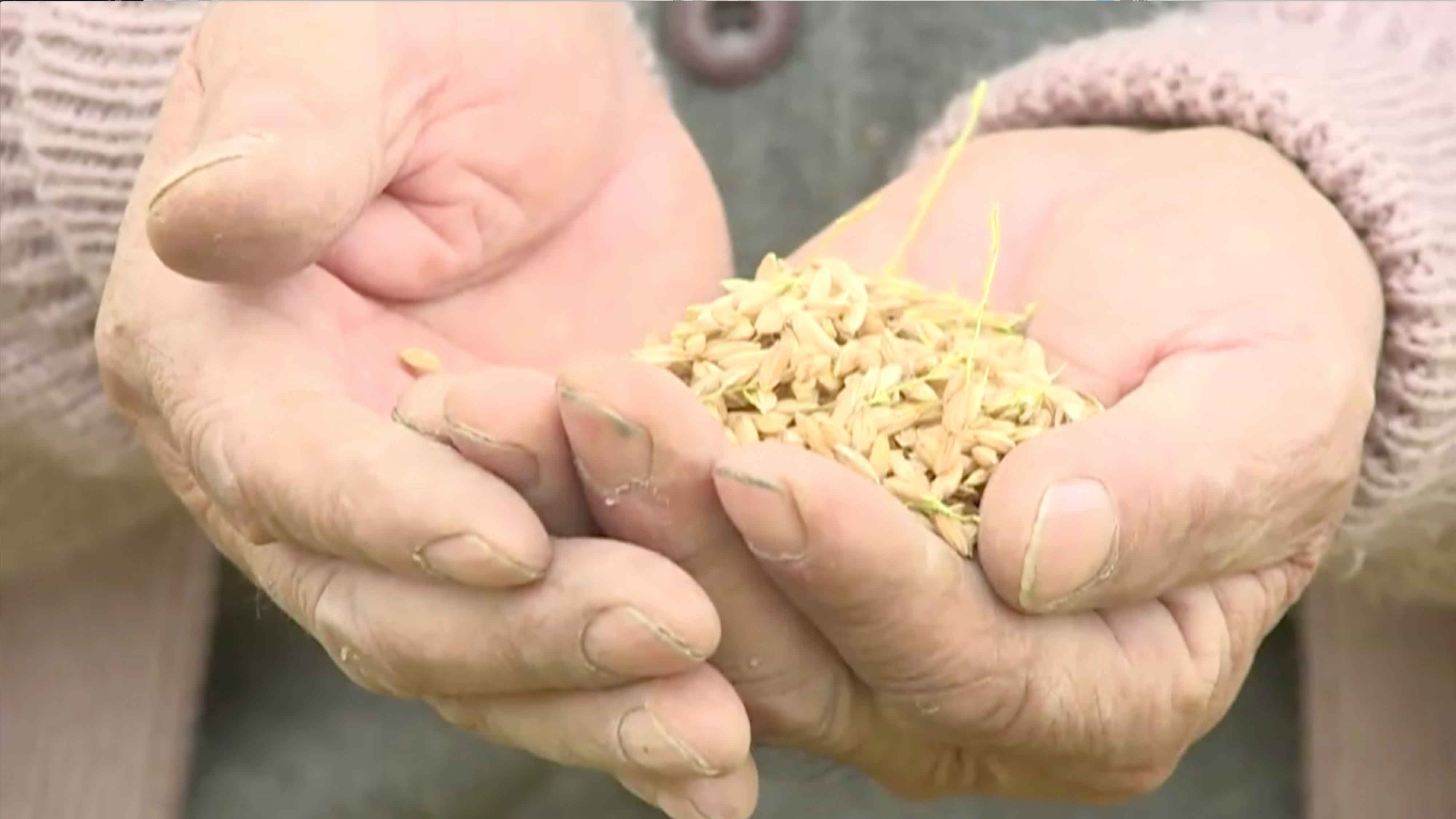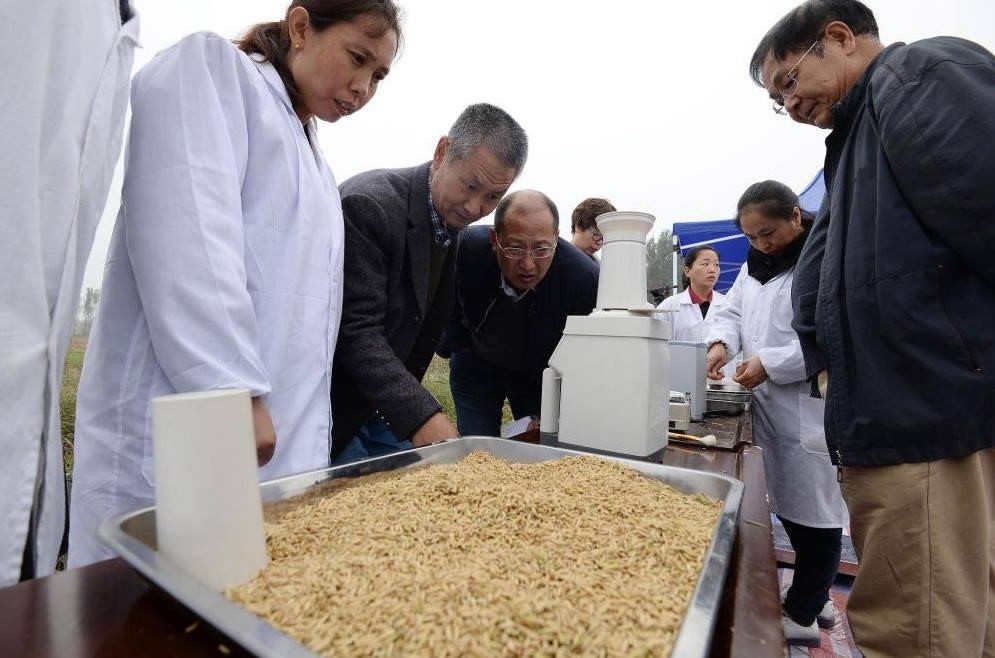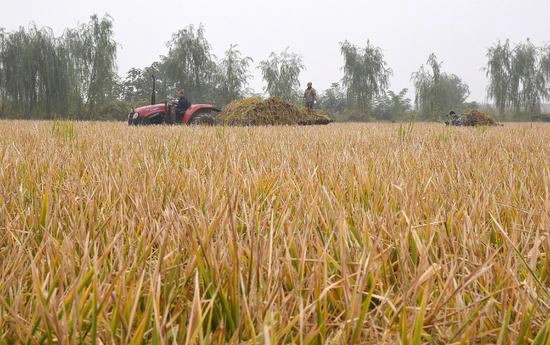
Tech & Sci
15:08, 16-Oct-2017
Chinese super hybrid rice sets new world record in yields
By CGTN's Xie Zhenqi

A new species of super hybrid rice raised by Chinese agriculture scientists achieved a yield of 17.2 tons per hectare on Sunday, creating a new world record.
The project was led by Yuan Longping, a rice expert and an academician at Chinese Academy of Engineering (CAE) who became famous for pioneering hybrid rice in the 1970s when he significantly relieved China’s food crisis and was thus honored as the "father of hybrid rice".
Harvested in a pilot paddy field in Handan City, northern Hebei Province, the three plots of the new species called Xiang Liangyou 900 produced 17.2 tons per hectare on average, with the highest yield of 17.7 tons per hectare.

Agricultural experts measuring the weight of the new super hybrid rice species /CCTV Photo
Agricultural experts measuring the weight of the new super hybrid rice species /CCTV Photo
Yuan’s team also successfully raised upland rice in Fucheng County, Hebei Province -- the first time upland rice has been grown on the North China Plain.
Upland rice is a type of rice grown on dry and rainfed soil without surface water accumulation, whereas aerobic rice, in comparison, is grown in flooded rice paddies.
Rising rice demands caused by population growth is leading to a strong competition for upland terrain, but since these fields traditionally suffer from a number of problems including drought, infertile soils, and weeds or plant diseases, achieving high yields from them poses a great challenge to farmers worldwide.

Yuan Longping and his team solved the challenge of growing upland rice on North China Plain. /CCTV Photo
Yuan Longping and his team solved the challenge of growing upland rice on North China Plain. /CCTV Photo
Four species of upland rice were planted in an area of over 1.33 hectares for experiment in Fucheng County, sowed both in spring and summer.
Some of them matured after 75 days -- the shortest growth period among all, while the longest takes 120 days to be ready for harvest.
Li Shouqin, a test field operator, said one of the rice varieties they are currently experimenting with can yield at least 450 kilograms per season.
Upland rice is sold on the market for four Yuan per gongjin (a traditional Chinese weight unit equivalent to 1 kilogram and a metric jin). Li expects to make an extra 1,000 yuan (147 US dollars) this year from the upland rice, rather than growing wheat and corn, crops conventionally grown in the North China Plain
Li also said the soil property and climate at the North China Plain is very suitable for growing upland rice, and he anticipates further promotion of upland rice in this region, based on this year’s output and previous data.

SITEMAP
Copyright © 2018 CGTN. Beijing ICP prepared NO.16065310-3
Copyright © 2018 CGTN. Beijing ICP prepared NO.16065310-3